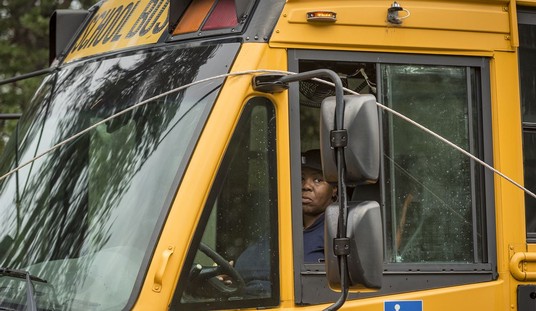These are challenging times for Senate Minority Leader Mitch McConnell. His forces in the Senate have dropped from 49 to 41. Big government is all the fashion in Washington. And Republicans are losing market share. But at this week’s CPAC he showed little pessimism and plenty of the steely strategic skills which have been his trademark.
His remarks before a packed house on Friday morning offered a heavy dose of tough love. He recounted the damage done by two election wipeouts — no senators on the west coast, no New England congressman, and huge sections of America now under a Democratic governor. His message: Republicans need to seek out voters who were Republicans and “get them to take a second look.” He noted that the very wealthy, the very poor, and minorities have been lost, and he repeated Ronald Reagan’s admonition: “Many Hispanics are Republicans — they just don’t know it.”
The heart of his speech, however, was policy rather than pure politics. On Guantanamo, he mocked Attorney General Eric Holder who recently visited the facility, pronounced it professionally run, and then repeated the Obama policy that it must be closed and all the detainees moved. The administration, McConnell said, must answer a key question: “Where exactly do you expect to send these guys?” After the audience offered some suggestions (Alcatraz, for example) he answered his own query: “They ought to be right there in jail in Guantanamo.”
Most of his ire was reserved for the Democrats’ renewed infatuation with big government, 1970s style liberalism — which, he said, needs to take its place “next to bell bottoms and leisure suits.” He reiterated that in a single month Obama has spent more than George W. Bush did in seven years on two wars and Katrina. He showed nothing but disdain for the proposed budget, pointing out that it “double dipped” on 122 programs already in the stimulus bill. His central theme: we should not expand government and hand the bill to our children.
McConnell is best known for his legislative prowess but the crowd ate it up, and the fiery determination to oppose card check, Guantanamo closing, and a huge expansion of the federal government, was greeted enthusiastically.
In a question and answer session with a small group of bloggers following his speech, McConnell did not shy away from painful truths. “Forty-one is not as much as 49,” he explained in response to a query about how to keep wayward senators in the fold after three defected to support the stimulus plan. “Elections have consequences. We are paying the price for the second bad election in a row.” He explained that he has a “diverse conference” and no longer has the luxury of losing several senators in order to maintain a filibuster.
As for those senators who left the fold both on D.C. voting rights and the stimulus bill, he rebuffed invitations to criticize them. The D.C. issue, he argued, will ultimately be decided by the courts, where the plain language of the Constitution will result in the legislation being struck down. And he had no patience for Michael Steele’s comment that he might not support certain incumbent senators. Without identifying Senator Arlen Specter by name, McConnell declared that he will be supporting the only one of the three up for re-election — whom he stated would stick with the Republicans on the budget and other key votes.
On the government’s deal with Citibank, McConnell diagnosed himself as suffering from “bailout fatigue.” He noted that while he — along with the Wall Street Journal, National Review and both presidential candidates — supported the original TARP because of the threat of a financial meltdown, it is “now being used as precedent for unlimited infusions of cash” into financial institutions. He warned banks that when they take the government as a “partner” they may come to regret it. His advice: “Get rid of your new partner as soon as you can.”
I asked him about card check and its prospects in the Senate. His eyes lit up and he chose his words with great care and emphasis, as if this was at or near the top of his “to do” (or rather, “to prevent”) list. He said he was “somewhat optimistic” on card check and that he “will have everyone” in the conference to filibuster a vote. Card check, he explained, “is one of the surest ways to Europeanize America.” If card check is passed, when coupled with excessive spending, “we turn this into France.” And he had a warning for Democrats in right to work states: “Voting for this may not be good for your political health.”
I pressed him on whether the Democrats might achieve some grand compromise — keeping secret ballots in place but enacting mandatory arbitration that would allow a government official to put in place a two year contract if the parties could not agree on a union deal. He was blunt: “No part of this bill is acceptable.” And would he have all 41 senators to oppose this portion of the bill? “We are working it very hard,” he answered. He then declared flatly that at a minimum two of the senators lost on the stimulus vote “will be with us” on this.
The bottom line: McConnell understands the stakes for the GOP and for conservatives more broadly. With fewer troops he nevertheless is in fighting form, trying to beat back an aggressive and ultra-liberal Democratic agenda. The degree to which he succeeds and is able to recruit more foot soldiers in the U.S. Senate will, to a large extent, determine the future course of the Obama agenda and the prospects for a conservative revival.









Join the conversation as a VIP Member